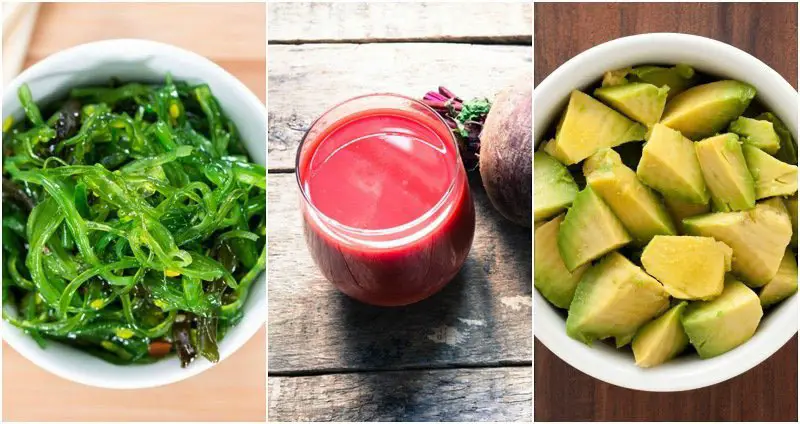The alkaline base-forming minerals are associated with a significant and rapid increase in blood and urinary pH and a long-term increase in urinary pH after 1 week of supplementation.
The ingestion of alkaline mineral-rich fruits and vegetables can help offset the acidogenic nutrients that dominate prevailing diets and thereby regulate an optimum and stable acid-base balance.
Conversely, continued reliance on animal protein and other acid-heavy dietary elements without proper supplementation of alkaline foods can raise the acidic content of urine, which is associated with high uric acid levels and cystine stone formation, among other health issues.
Several foods are alkaline in nature and can help properly balance your pH levels to reduce daily ailments and the possibility of certain long-term health risks. There a number of reasons an alkaline diet generously supplied with fruits and vegetables is just what the doctor orders.
By improving the potassium to sodium ratio in the body, alkaline foods can help lower your risk of hypertension and stroke as well as support musculoskeletal health and reduce muscle wasting. Alkaline diets can also be attributed for a spike in intracellular magnesium, which plays an indispensable role in the functioning of several important enzyme systems.
Magnesium is also essential for the activation of vitamin D and helps facilitate the vitamin D apocrine/exocrine systems. An alkaline diet also brings in its wake a significant increase in growth hormone, which can engender longstanding benefits in terms of memory and cognition as well as improved cardiovascular health.
Some foods may exhibit acidic properties but end up having an alkalising effect on the body once metabolised. Lemon, for example, is thought to be acidic given its pungent taste and corrosive properties that can erode our tooth enamel.
However, once it’s broken down for energy in the body, lemon leaves the blood alkaline. Thus, certain foods can prove to be quite dichotomous and should not be dismissed as acidic simply on face value as they can “turn” alkaline in the body.
Foods that are Alkaline in Nature
Here are 10 alkaline foods you should eat to improve your health.
1. Lemons
Even though you may not believe that lemons are a must on the high-alkaline list, it is true.
Lemons are extremely high in alkaline minerals, such as potassium (38 mg potassium/oz), that have alkalising effects on the body. The citric acid in them is highly acidic in a natural state, but once consumed, the citric acid gets metabolised and has a wonderful alkaline effect on the body
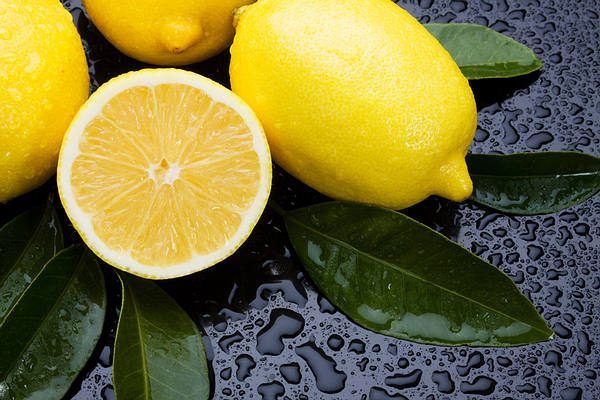
- Lemons are a good source of magnesium, calcium, iron, and vitamin A, C, and B-complex, as well as pectin fibre and carbohydrates.
- They also contain potent antibacterial, antiviral, and immune-boosting powers. Ideally, you are advised to consume one lemon a day but have no more than two lemons because you may end up with an upset the stomach and damaged teeth.
- The vitamin C in lemons help improve digestion, aid in weight loss, support skin health, boost immunity, fight cancer, control high blood pressure, prevent infections, and lots more.
- To reap the alkalising benefit of lemons, just squeeze the juice from ½ of a lemon into a glass of purified, lukewarm water. Drink it first thing in the morning on an empty stomach, and wait 30 minutes before eating your breakfast.
2. Spinach
Spinach, one of the healthiest leafy greens, is highly alkaline in nature. It is richly endowed with potassium (1 cup or 30 g of spinach contains 167 mg of potassium), which acts as a therapeutic alkalising agent.
It is also loaded with minerals that provide the body with amazing alkaline effects, such as manganese, magnesium, iron, calcium, and folate. Plus, it is loaded with dietary fibre, flavonoids, and carotenoids.
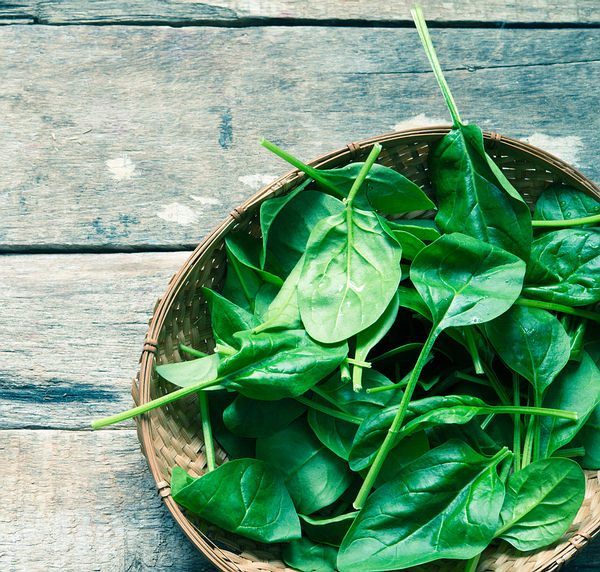
- By increasing your spinach intake, you can boost your protein levels, fight anaemia, improve your heart health, prevent premature ageing, reduce your risk of cancer, and enjoy healthy skin.
- Aim for at least 1 cup of spinach daily. You can add it to your salads, smoothies, juice, sandwiches, stir-fries, and main dishes.
Note: The iron in spinach is nonheme, which is not readily absorbed by the body unless consumed with vitamin C or vitamin C-rich foods, so it’s recommended to consume spinach with citrus fruits or vegetables.
3. Avocados
Do your health a flavor and treat yourself to a serving of avocado every day. This flavoursome fruit is not only easy on the taste buds, but it also works as a wonderful alkalising agent, where 1 cup of pureed avocado contains approximately 1166 mg of potassium.
The rich creamy flesh of avocados is packed with more than 25 essential nutrients. It is treasured among health circles for striking the perfect balance between good amounts of unsaturated fatty acids and low levels of unhealthy cholesterol, which makes it conducive to preserving cardiovascular health.
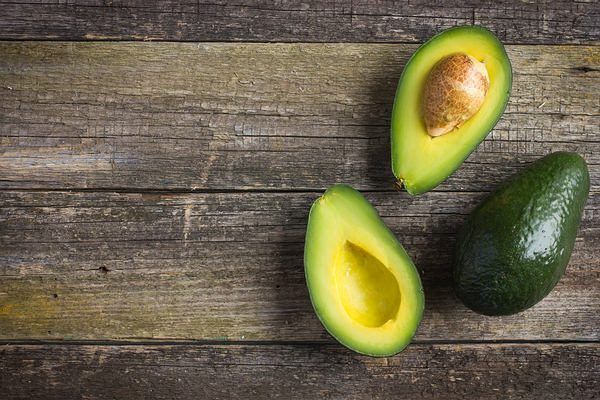
- The fruit is also acknowledged for its health-promoting lipidic composition, which boasts high levels of phytosterols, squalene, tocopherols, and omega fatty acids.
- In addition to a heavy dose of antioxidants, avocados also wrap within their layers a considerable sprinkling of fat-soluble vitamins, which are less common in other fruits, besides its high levels of potassium, protein, fibre, and magnesium.
- You should try to eat at least ½ of avocado daily. Opt for organic avocados, whenever possible.
- You can include it in a salad, smoothies, or soups. Another option is to make tasty guacamole, a popular Mexican dish.
4. Kale
Kale is another alkaline food that you should definitely include in your diet as it can counter the acid and alkalise the body.
This nutritious leafy green member of the Brassica vegetable group is very high in beta-carotene, vitamin K, and vitamin C and rich is in calcium, potassium, and iron.
Another health-promoting facet of kale’s composition is an abundant supply of carotenoids, namely, lutein and zeaxanthin, both of which exhibit potent eye-protective activity against macular degeneration.
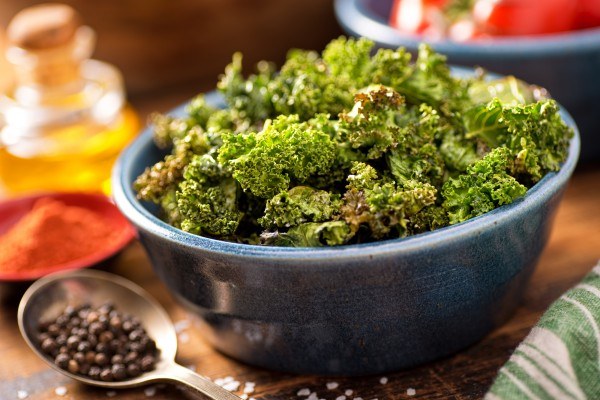
- Plus, this power-packed food offers a wide array of other health perks, including significant antioxidant and anticancer activity, reduced bad cholesterol levels, prevention of coronary artery disease, effective weight management, and improved immunity.
- Set a goal to eat this green vegetable about four times per week. You can make kale chips or use the leaves in tasty smoothies, soups, or salads. The suggested serving size is from 1½ to 2 cups.
Note: If you have under active thyroid particularly due to iodine deficiency, you should avoid eating too much raw kale as it may further aggravate your thyroid problem and may cause goitre. Thyroid patients can eat cooked kale as cooking deactivates the enzyme responsible for thyroid problems.
5. Celery
You can also benefit from the alkalising prowess of yet another health-promoting leafy green, namely, celery, which can balance the pH of the body by neutralising the dietary acid load. Celery contains 260 mg of potassium per 100 g.
Celery contains vitamin A, B1, B2, B6, C, E, K, and P and minerals including iron, calcium, potassium, phosphorus, magnesium, and zinc.
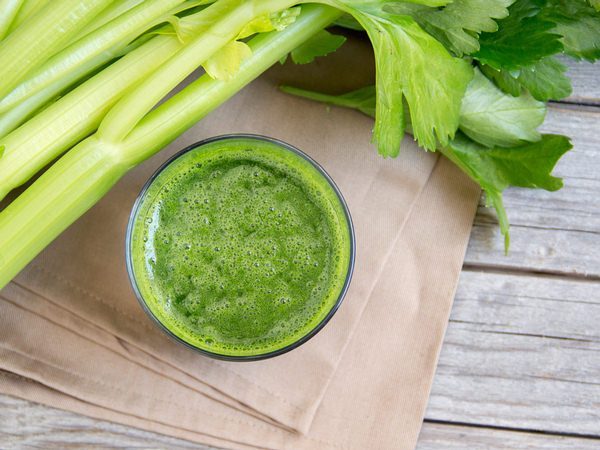
- Celery is also touted as a negative-calorie food, which essentially means that it contains fewer calories than those you burn while chewing and digesting it. Water being its major component, celery helps hydrate and nourish the cells in your body.
- Not just that, this water-rich vegetable also functions as a cleansing agent; it helps flush out toxins through its diuretic effect that rids the body of excess fluids.
- This simple green stalk helps lower cholesterol, inhibits several cancers, supports the immune system, fights inflammation, supports cardiovascular health, aids in weight loss, and lots more.
- Just two to three celery stalks per day are enough to keep your body alkaline. You can also add it to your salads, soups, or smoothies.
6. Wheat grass
Another lesser-known food that can just as effectively lower the acidic pH of your body to the optimally alkaline range is wheat grass (4000 mg potassium/100 g of wheat grass).
Besides its alkalising attributes, wheat grass also serves as a dietary reservoir of several nutrients that are a boon for your body. It is a rich source of chlorophyll and vitamins, including vitamins A, B-complex, C, and D. It also contains manganese, iron, zinc, copper, and selenium.
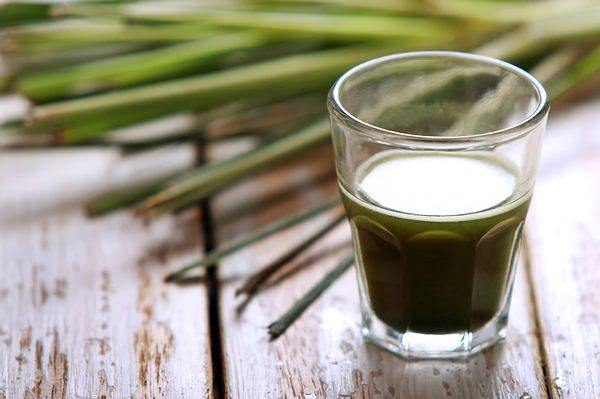
- Owing to its nutrient-heavy profile, wheat grass can contribute to better energy levels, bolstered immunity, weight loss, blood sugar regulation, heart health preservation, and cancer prevention, to name just a few of its health gains.
- You can make fresh juice out of the raw wheat grass plant and drink 1 to 2 ounces of it daily. You can drink plain wheat grass juice in concentrate form or dilute it with some fruit or vegetable juice.
- Wheat grass powder is also available in the market. Add 1 teaspoon of the powder to a glass of water, stir it well, and drink it.
7. Cucumbers
Cucumbers are another healthy addition to an alkaline diet (76 mg potassium/cup of sliced cucumber).
The nutritional profile of cucumbers is very impressive.
It contains carbohydrates (sugar, dietary fibre), fats, proteins, vitamin A, vitamin B1 (thiamine), vitamin B2(riboflavin), vitamin B3 (niacin), vitamin B5 (pantothenic acid), vitamin B6 (pyridoxine), vitamin B9 (folate), C, vitamin E, Vitamin K, potassium, phosphorus, magnesium, calcium, iron, sodium, zinc, copper, manganese, selenium, etc.

- Besides being low in calories, these water-logged greens exhibit significant health-friendly antioxidant and anti-inflammatory properties.
- Including cucumbers in your diet can help reduce your risk of cardiovascular diseases, improve digestion, lower blood sugar levels, and fight different types of cancer. Being high in water content (95%), they also keep the body hydrated.
- You can munch on fresh cucumbers as a healthy snack or add them to your salads or sandwiches. You can use cucumbers as a base for practically every alkaline soup, smoothie, and juice.
8. Broccoli
Broccoli figures as one of the top-ranking alkaline vegetables rich in the supply of one of the key base-forming minerals: potassium (316 mg potassium/100 g broccoli). The added benefits that come in the form of alkalising phytochemicals further merit the inclusion of this cruciferous vegetable in your diet.
What makes broccoli even more nutritionally robust is the fact that it has the perfect mix of a variety of vitamins, such as A, B6, C, K, and E, along with essential minerals such as calcium, iron, magnesium, and phosphorus.

- Moreover, it is also associated with significant antioxidant goodness on account of the flavonoids, polyphenols, and anthocyanin present in it.
- Apart from alkalising the body, broccoli helps fight cancer, improves digestion, boosts the cardiovascular system, improves immunity, supports skin health, boosts metabolism, and lots more.
- Try to eat broccoli at least four times a week. You can enjoy it steamed or roasted. You can also put it in salads, juices, smoothies, and soups.
Note: Those with hypothyroidism should limit their intake of broccoli as it can worsen their thyroid problem.
9. Garlic
A true miracle food, garlic is another alkaline food (401 mg potassium/100 g, 181 mg calcium/100 g, and 25 mg magnesium/100 g of raw garlic) that promotes good overall health.
The main compound in garlic is allicin, which helps bring down elevated blood pressure and cholesterol levels through its involvement in different body mechanisms.
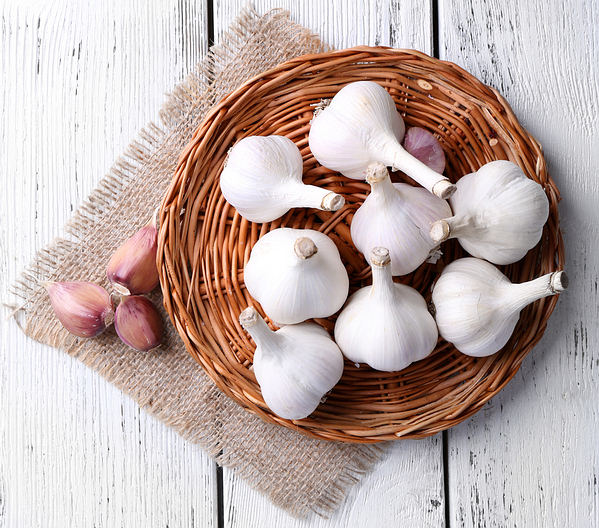
- Garlic is also prize for its nutrient-dense composition, which includes vitamin B1, B6, and C, as well as manganese, calcium, copper, and selenium. The potent antioxidant properties of garlic also add to its healthy charm.
- Garlic aids detoxification by increasing the production of glutathione, which helps filter toxins from the digestive system.
- This alkaline-forming food offers many other health benefits. It promotes cardiovascular health by lowering blood pressure and total serum cholesterol.
- To enjoy the alkaline benefit of garlic, it must be crushed or chopped in order to release the beneficial sulphur compounds. Consume two to four fresh garlic cloves every day to help keep your body’s pH at an optimal level.
- You can even stir-fry alkaline vegetables with a couple of cloves of garlic and enjoy!
10. Bell Peppers
Be it red, green, or yellow, bell peppers are highly alkaline in nature (211 mg potassium/100 g bell peppers). They help transform acidic foods, raising the body’s overall alkaline level.

- Bell pepper is a rich source of alkaloids (capsaicin), fatty acids, flavonoids, volatile oils, and carotene pigments. It is rich in vitamin C (ascorbic acid) and zinc, two nutrients that are vital for a strong and healthy immune system. It is high in vitamin A, rutin (a bioflavonoid), beta-carotene, iron, calcium, and potassium.
- It also contains magnesium, phosphorus, and sulphur, B-complex vitamins, sodium and selenium.
- Try to eat three to four servings of bell peppers per week. One serving is equal to 1 cup of chopped, raw peppers or 2 small peppers. You can include bell peppers in your diet in raw, baked, roasted, grilled, cooked, or stuffed form.
